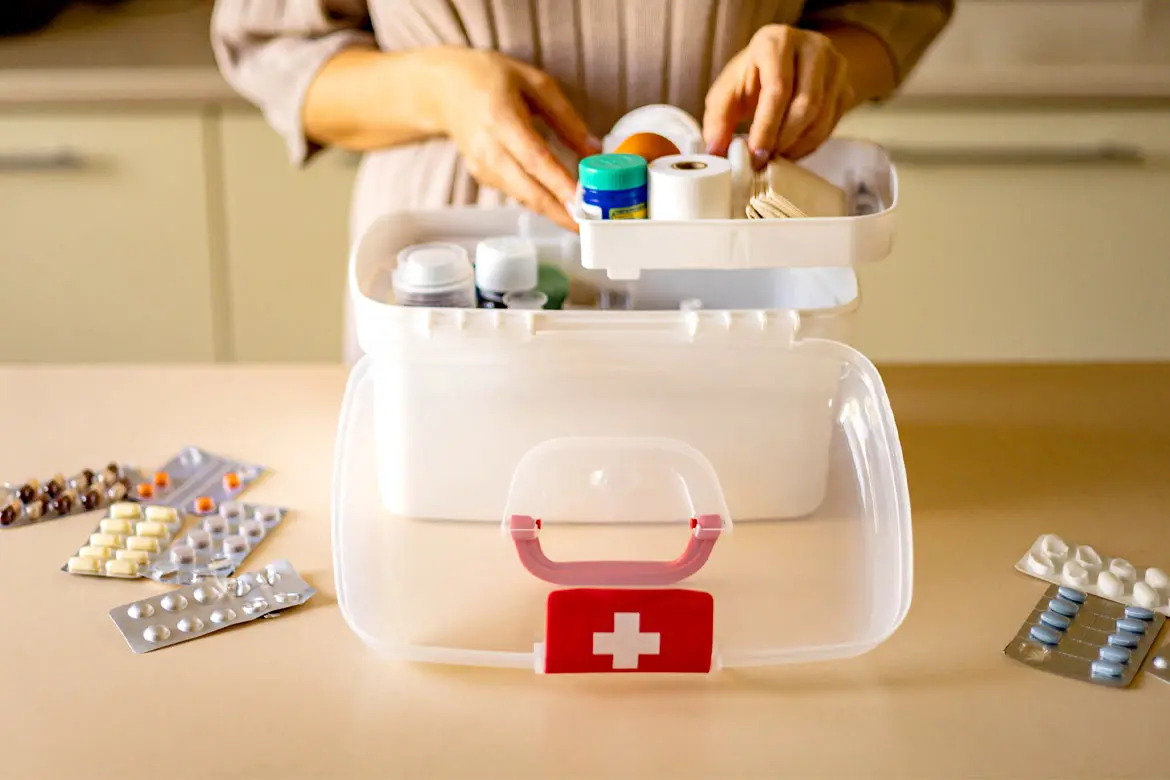We've all been there. Splayed on the couch with a fever, the sniffles and a headache, conspiring to ruin a perfectly nice day. While we may reach for familiar quick-fixes in the form of age-old remedies or medications we have lying in our cabinets, are we using them to treat the right conditions? Additionally, how much do we know about what they do and how to use them safely?
Dr Boey Weng Heng, Family Physician at Parkway Shenton delves deeper into the over-the-counter medications for a common cold or fever, and when your condition may need to be evaluated by a doctor so you can recover properly.
Paracetamol
Paracetamol. That dependable go-to for whenever you're feeling under the weather.
This medication is specifically used to ease fever, headaches, muscle aches and toothaches. It can come in either tablet form for adults and liquid (syrup) for children.
A note of caution though, paracetamol may be safe but it isn't for everyone. Especially if you already are under medication or have an existing health conditions such as liver or kidney disease. In these instances, check in with your family doctor should you feel unwell and are considering taking paracetamol to ease the symptoms.
Non-steroidal anti-inflammatory drug (NSAID)
NSAIDs are fever, pain and inflammation relief medications. These are some of the various types of NSAIDs available from pharmacies:
- Ibuprofen (Nurofen) is a slightly stronger medication compared to paracetamol used to alleviate fever and pain.
- Mefenemic acid (Ponstan) can be helpful to relieve menstrual cramps.
- Fastum is available in gel form which can be applied on areas of the body to relieve pain or aches.
Points to note:
- People who have a history of gastric or duodenal ulcer or kidney disease should not use NSAIDs.
- NSAIDs should be taken with food because they can cause stomach irritation on an empty stomach.
- Check with your family doctor if you are on any long-term medication for conditions such as diabetes or high blood pressure before taking any NSAIDs as they may interact with other medicines.
Antihistamines
Antihistamines are drugs that relieve the effects of histamine, a chemical released by the body when it comes into contact with allergy triggers such as dust mites or certain foods.
These histamine effects which we otherwise refer to as allergic reactions can include an itch, runny nose and hives.
Examples of antihistamines include loratadine, chlorpheniramine (piriton) and cetirizine (zyrtec). You may wish to take antihistamines which cause drowsiness such as chlorpheniramine at night to help you sleep.
A note of caution:
- Avoid driving or operating heavy machinery if you have taken antihistamines that cause drowsiness.
Antacids
The effects of heartburn, abdominal bloatedness and discomfort can be a source of great distress. Enter antacids. They neutralise stomach acid to provide much needed relief to these symptoms.
Examples of antacids include magnesium trisilicate (MMT), aluminium hydroxide (antacid) and Gaviscon.
Points to note:
- If you have existing medical conditions such as heart disease or kidney failure, speak to your family doctor before taking antacids to prevent any undesirable effects.
- If your symptoms do not go away with these antacids, consult your doctor. A gastroscopy may be necessary to examine the lining of your stomach, oesophagus and small intestine to identify the underlying problem. The possibilities may range from gastric ulcers to stomach cancer.
Anti-diarrhoeal medications
Recall that meal that gave you the runs? It may not jog a pleasant memory, but to reign in the symptoms, you may have turned to antidiarrhoeal medications such as loperamide (Imodium), smecta and activated charcoal.
Anti-diarrhoeal medications work in the following ways:
- Trapping the toxins or chemicals released by bacteria in the intestine
- Reducing gut motility. This refers to reducing the movement of food through the gut and out of the body.
Anti-diarrhoeal medications can be combined with oral rehydration salt if there is any dehydration or loss of fluid in the body caused by the diarrhoea.
Points to note:
- If the diarrhoea becomes excessive or if abdominal discomfort becomes severe and unbearable, consult a doctor.
- Conditions potentially behind abdominal discomfort can include peptic ulcer disease, acute cholecystitis (inflammation of the gallbladder) or acute appendicitis (inflammation of the appendix), all of which warrant urgent medical attention at your nearest clinic or A&E department.
Antiseptic cream
Antiseptic creams can be applied on minor cuts or bites which can reduce the chances of the wound getting infected by bacteria. If the cuts or bites worsen, consult your doctor as an antibiotic cream or even oral antibiotics may be needed.
Points to note:
- Use clean hands before applying the antiseptic cream on your wound
- Do not use the cream on your eyes or ears.
At a glance
Over-the-counter medications can provide relief for ailments when symptoms are mild, provided they are used correctly and safely. Here is an overview of what you should know before taking such medications:
- Read the medication's label properly. Follow the recommended dosage, frequency of consumption, how to take the medication, and note its possible side effects.
- Do not take medication that is expired.
- Check proper dosages for children since this can vary depending on their age and weight.
- Keep your medications out of children's reach.
- Consult a doctor before taking these medications if you have pre-existing conditions or are allergic to any components in them.
- When in doubt, always seek advice from a doctor.
Finally, though symptoms from common conditions may appear mild, it is important to keep track of whether they persist or worsen over time. These are all signals that the issue requires medical intervention. If severe symptoms like shortness of breath, chest pain, giddiness, or vomiting are experienced, seek urgent medical attention.
Need to see a doctor to help you bounce back from a health concern? Visit a Parkway Shenton clinic near you today!















